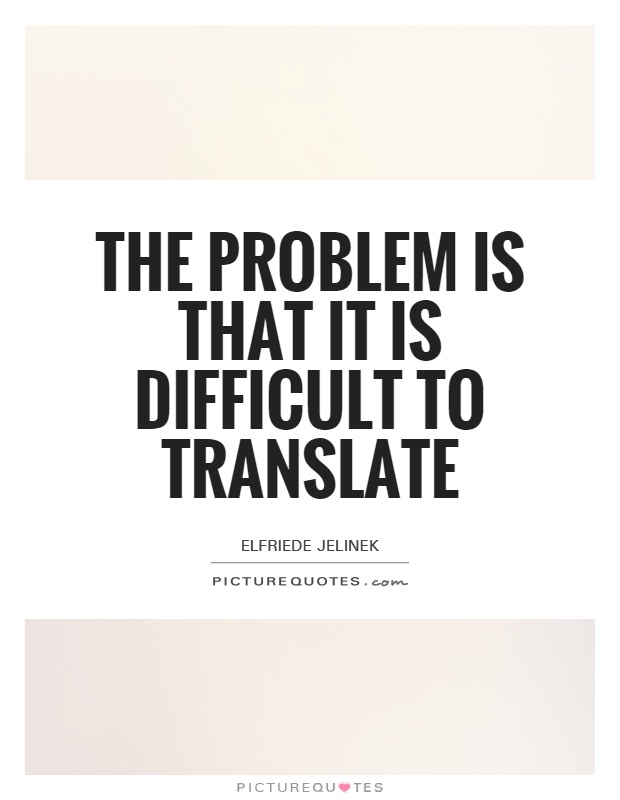The problem is that it is difficult to translate

The problem is that it is difficult to translate
Elfriede Jelinek is an Austrian playwright and novelist known for her challenging and provocative works that often push the boundaries of language and form. Her writing is characterized by its dense, complex prose and its exploration of difficult and controversial themes. As a result, translating Jelinek's work presents a unique set of challenges for translators.One of the main difficulties in translating Jelinek's work is the complexity of her language. Jelinek's writing is often highly stylized and experimental, with long, convoluted sentences and a dense, poetic style. This can make it difficult for translators to capture the nuances and subtleties of her writing in another language. Translating Jelinek's work requires a deep understanding of her unique voice and style, as well as a willingness to take risks and experiment with language in order to convey the richness and complexity of her writing.
Another challenge in translating Jelinek's work is the controversial and provocative nature of her themes. Jelinek's writing often deals with taboo subjects such as sexuality, violence, and power, and she is known for her unflinching exploration of the darker aspects of human nature. Translating these themes into another language can be difficult, as they may not have the same impact or resonance in a different cultural context. Translators must be sensitive to the cultural and social implications of Jelinek's work, and must find ways to convey the power and intensity of her writing without losing its essential meaning.












 Friendship Quotes
Friendship Quotes Love Quotes
Love Quotes Life Quotes
Life Quotes Funny Quotes
Funny Quotes Motivational Quotes
Motivational Quotes Inspirational Quotes
Inspirational Quotes